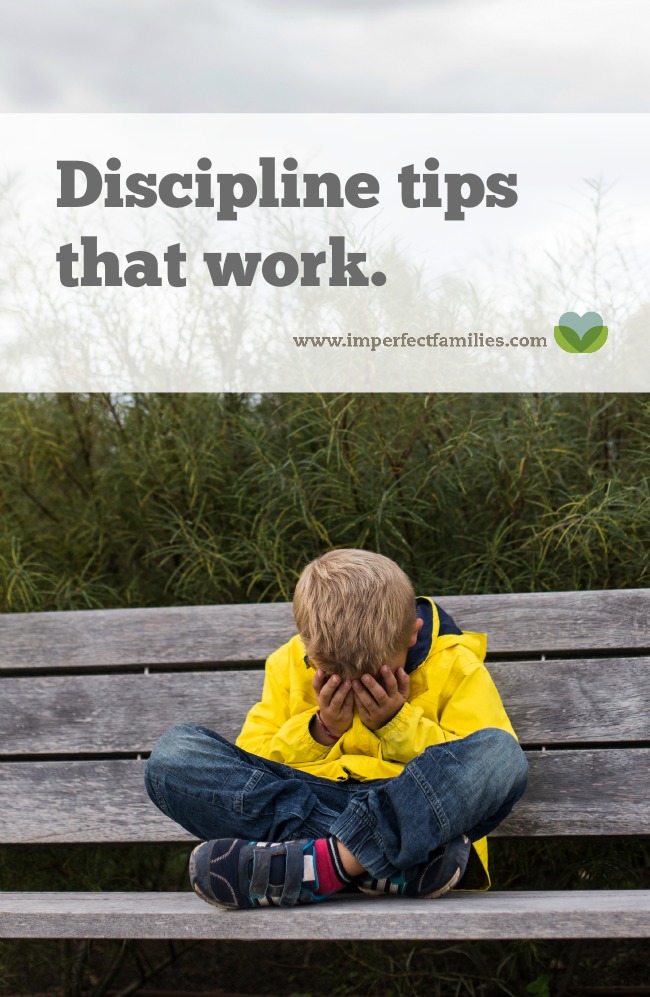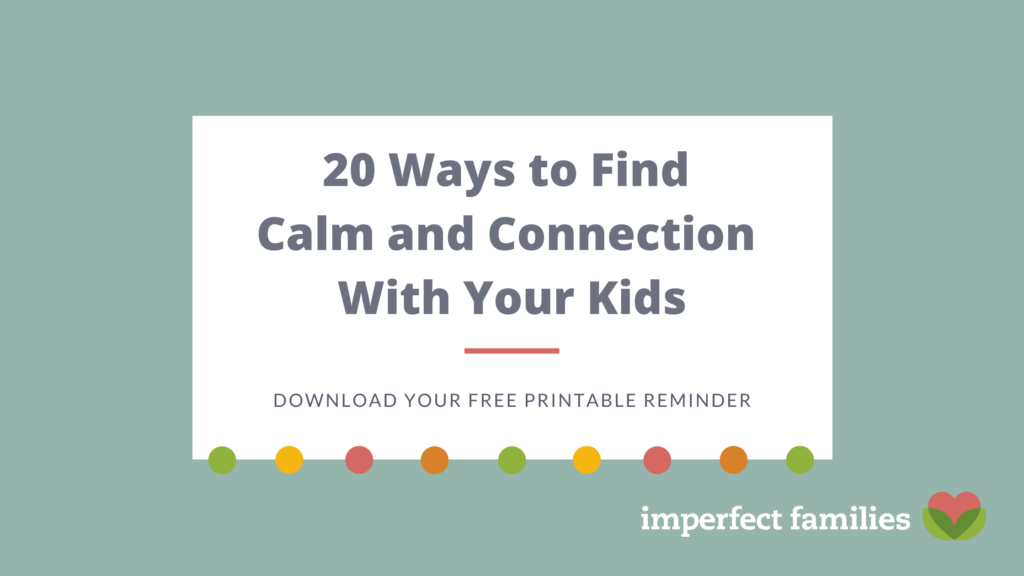The goody bag is bulging with toys and candy.
Your youngest child beams with pride as she displays her loot and gives you a minute-by-minute recap of the “My Little Pony” themed birthday party she just attended.
Out of the blue, your son snatches the goody bag and says, “That party was for babies.”
“It was not!” your daughter defends, trying to reclaim her candy.
Your son continues to pester her and within seconds, both are screaming.
How do you respond?
Wait…before we go any further, let’s think about your goals for discipline.
Don’t worry, it’s not as complicated as it sounds. Actually, you’re probably doing it already!
Remember, discipline means teaching or guiding. So, we’re not talking timeouts, grounding, or spanking.
Goals for discipline = What you want your child to learn from this situation
In the example above, you may have a few things you’d like your child to learn:
- Grabbing the bag and criticizing the party was not ok
- It’s normal to feel jealous
- How to handle jealous feelings without hurting others.
You may feel a sense of urgency to “teach” your child these things RIGHT NOW!
(Insert heated lecture here).
Unfortunately, these “conversations” don’t usually go well.
Slow down.
Instead or rushing into giving a consequence or punishment, you have 3 options for meeting your disciple goals.
1. Teach now: Some things are simple enough to teach in the moment. These can be little reminders, “In this family we use kind words.” Or, “Please ask your sister if you can see her goody bag instead of grabbing it from her.” Nothing fancy, these are skills that your child knows, you’re just guiding them back on track.
2. Teach later: This is where the majority of your guidance will happen. It might happen a few minutes, a few hours, or a few days later. Wait until you and your child are calm. Sometimes, you will talk with your child alone, and sometimes you may make it a family learning experience.
3. Teach ongoing: Most skills are taught over time, rather than a one-time conversation. Make teaching morals, values, problem-solving, and emotion identification part of an ongoing discussion with your kids. Watch for natural opportunities to explore complicated emotions, social situations, or dilemmas together as a family.
How to teach:
There are tons of ways to teach your child without raising your voice, sending them to time out, or taking away a privilege. Here are just a few ideas to get you started:
- Use empathy: “It’s hard when someone else gets to go to a party and we have to stay home.” Or, “I bet you felt jealous that your sister got a bag of candy.”
- Make feelings and behaviors normal: “Jealousy is a tricky feeling. Did you know some people call it the ‘green eyed monster’? Why do you think that is?”
- Open-ended questions: “I wonder how you felt when your sister was showing me her goody bag?” Or, “Can you tell me what you thought when your sister was talking about the party?”
- Brainstorm solutions: “What could you do next time you’re feeling jealous?” Or, “How can you tell me about your feelings without hurting others?”
- Find examples in the media: Use characters on TV or in books as a springboard for conversation about choices, feelings, and behaviors.
Discipline in action.
Sitting down on the floor between your kids, hugging your daughter and attempting to hug your son (he’s pulling away).
First, you set a limit, “In this family, we do not grab things from others. Please ask if you want to see her goody bag.”
Then, you empathize with the struggle, “It’s hard when your sister gets to do something fun and you don’t. It’s normal to feel jealous.”
Your son still seems upset when he replies, “I’m not jealous, I hate My Little Pony!”
That’s your cue. He’s not ready for any more teaching right now. And that’s ok. You’ll look for another opportunity to talk with him this afternoon.
Plus, since jealousy is bound to come up again, it might be a good discussion to have as a family.
You know your discipline goals, you’re going to address it, there’s no need to rush.




Comments have been turned off to retain the privacy of all families. If you have a question or comment on the topic, you're always welcome to contact me.